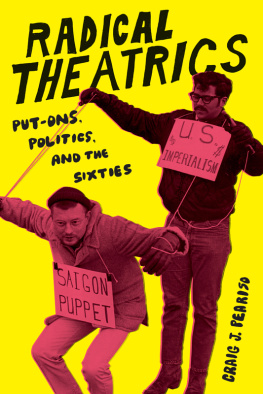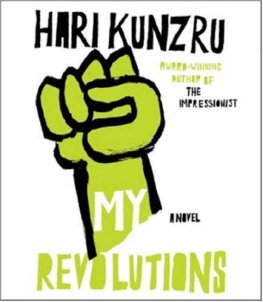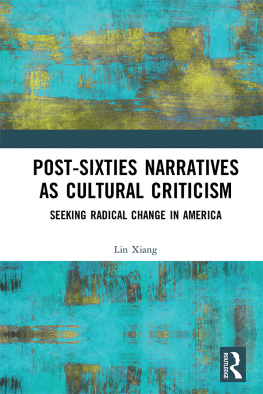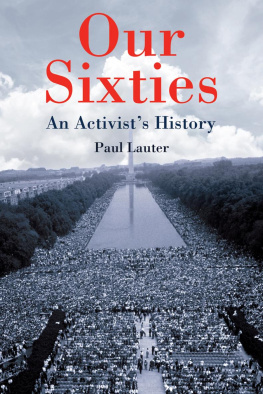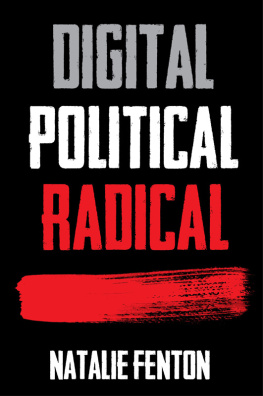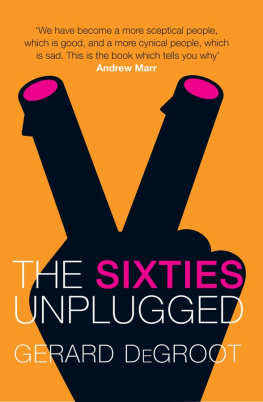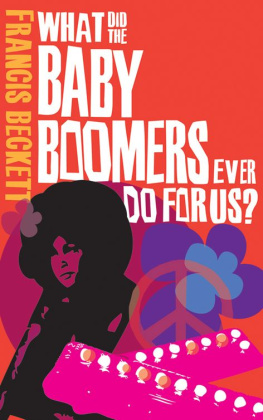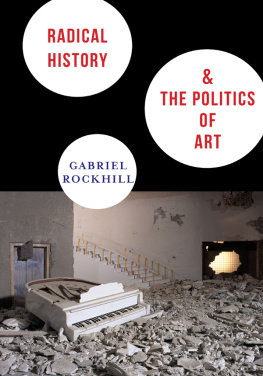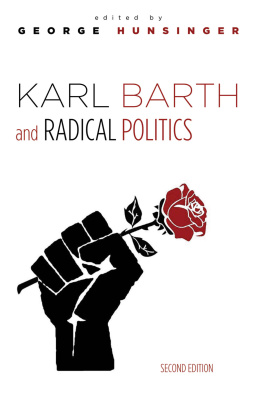Peariso - Radical theatrics: put-ons, politics, and the sixties
Here you can read online Peariso - Radical theatrics: put-ons, politics, and the sixties full text of the book (entire story) in english for free. Download pdf and epub, get meaning, cover and reviews about this ebook. City: United States, year: 2015, publisher: University of Washington Press, genre: Science. Description of the work, (preface) as well as reviews are available. Best literature library LitArk.com created for fans of good reading and offers a wide selection of genres:
Romance novel
Science fiction
Adventure
Detective
Science
History
Home and family
Prose
Art
Politics
Computer
Non-fiction
Religion
Business
Children
Humor
Choose a favorite category and find really read worthwhile books. Enjoy immersion in the world of imagination, feel the emotions of the characters or learn something new for yourself, make an fascinating discovery.
Radical theatrics: put-ons, politics, and the sixties: summary, description and annotation
We offer to read an annotation, description, summary or preface (depends on what the author of the book "Radical theatrics: put-ons, politics, and the sixties" wrote himself). If you haven't found the necessary information about the book — write in the comments, we will try to find it.
Peariso: author's other books
Who wrote Radical theatrics: put-ons, politics, and the sixties? Find out the surname, the name of the author of the book and a list of all author's works by series.
Radical theatrics: put-ons, politics, and the sixties — read online for free the complete book (whole text) full work
Below is the text of the book, divided by pages. System saving the place of the last page read, allows you to conveniently read the book "Radical theatrics: put-ons, politics, and the sixties" online for free, without having to search again every time where you left off. Put a bookmark, and you can go to the page where you finished reading at any time.
Font size:
Interval:
Bookmark:

2014 by the University of Washington Press
Printed and bound in the United States
Design by Dustin Kilgore
Composed in ITC Century, a typeface designed by Tony Stan
18 17 16 15 14 5 4 3 2 1
All rights reserved. No part of this publication may be reproduced or transmitted in any form or by any means, electronic or mechanical, including photocopy, recording, or any information storage or retrieval system, without permission in writing from the publisher.
UNIVERSITY OF WASHINGTON PRESS
www.washington.edu/uwpress
Library of Congress Cataloging-in-Publication Data
Peariso, Craig J.
Radical theatrics : put-ons, politics, and the sixties / Craig J. Peariso.
pages cm
Includes bibliographical references and index.
ISBN 978-0-295-99411-6 (hard cover : acid-free paper) 1. Protest movementsUnited StatesHistory20th century. 2. RadicalismSocial aspectsUnited StatesHistory20th century. 3. RadicalsUnited StatesHistory20th century. 4. Political activistsUnited StatesHistory20th century. 5. ArtPolitical aspectsUnited StatesHistory20th century. 6. Performing artsPolitical aspectsUnited StatesHistory20th century. 7. Street theaterPolitical aspectsUnited StatesHistory20th century. 8. Political cultureUnited StatesHistory20th century. 9. CountercultureUnited StatesHistory20th century. 10. United StatesHistory19611969. I. Title.
HN59.P43 2014
303.484dc23
2014025249
The paper used in this publication is acid-free and meets the minimum requirements of American National Standard for Information SciencesPermanence of Paper for Printed Library Materials, ANSI Z39.481984.
ISBN-13 978-0-295-80557-3 (electronic)
To Larry and Sharon
ACKNOWLEDGMENTS
THIS PROJECT WOULD NEVER HAVE BEEN FINISHED WITHOUT THE help of a number of colleagues, friends, and family members. From the projects origins to its current state, the input and support of the following have been invaluable. I owe particular thanks to Jonathan Katz, without whose advice a project of this breadth would have seemed unthinkable. His comments on early drafts of this work kept me focused and moving forward at a stage when it would have been all too easy to follow any number of false leads. Joseph Monteyne, John Lutterbie, Seth Clark Silberman, and James Rubin also provided valuable feedback on early versions of much of what follows, helping me to sharpen my thinking on a number of issues the work raises. More recently, the anonymous readers for the University of Washington Press offered thoughtful and incisive criticism, which in turn led me to further refine the arguments presented herein. To them I am incredibly grateful.
Archivists at numerous libraries have also played a key role in the completion of this work. Specifically, I would like to thank Terry Goldich and the staff at the University of Connecticuts Thomas J. Dodd Research Center. Their award of a Sigmund Strochlitz Travel Grant and their assistance in navigating the Hoffman family papers were vital in the earliest stages of my research. I would also like to express my gratitude to the archivists and staff at the New York Public Library, and at the Special Collections at Stanford University Library, for providing me with access to the International Gay Information Center Archives and the collected papers of Black Panther Party founder Huey P. Newton.
The list of colleagues and friends who have helped with various forms of professional, intellectual, and moral support over the years is far too long to include. There are, nevertheless, those whose omission would be unforgiveable. To my colleagues Zainab Bahrani, Francesco Benelli, Holger Klein, Matthew McKelway, Bill Hood, Caroline Earley, Kate Walker, Anika Smulovitz, Beverly Howard, Dominick Longbucco, Barrett Norman, Andy Goodman, and Michal Temkin-Martinez, I would like simply to say, Thank you. Any attempt to formulate a specific debt I might owe you individually would only prove embarrassing. To Chad Laird, J. P. Park, Sarah Cartwright, Yvie Fabella, and Terry McLaughlin, I owe my gratitude not only for their friendship but also for their understanding and forgiveness in those times when the demands of this projectamong other thingskept me from writing or calling as often as I would have liked. I must also thank Mike Hoglund and John Gold for their generosity and technical support; without their help, this work would have taken so much longer. Joel and Naomi Rosenthal, and Miranda Townsend and Jonathan Bayer provided me with homes away from home, playing an important, albeit unexpected, role in bringing this project into being. Similarly, Dave and Carol Hoglund may (still) never know just how much I appreciate their help and hospitality. And special thanks are due to my parents, Larry and Sharon, and my sisters, Stephanie and Katrina, without whom I would never have written a word.
I also owe thanks to Columbia University Press for allowing me to reprint The Counterculture in Quotation Marks: Sontag and Marcuse on the Work of Revolution from The Scandal of Susan Sontag, edited by Barbara Ching and Jennifer Wagner-Lawer, 15470, 2009; and to Cambridge University Press for allowing me to use Styleless Style: What Photorealism Can Tell Us about the Sixties from the Journal of American Studies 47, no. 3 (August 2013): 74357 (portions of both appear in revised form in the introduction). Taylor and Francis has allowed me to reprint Formlessness as Figure: Guerrilla Theater and the Image of Utopia from Third Text 17, no. 3 (Fall 2003): 26171; and Cambridge Scholars Publishing has allowed me to use Commercials for the Revolution: Movement Celebrities and the Theatricality of Protest from Film and Television Stardom, edited by Kylo Patrick Hart, 16179, 2008 (both of which appear in revised form in ).
Finally, I will offer my deepest gratitude to Sarah Hoglund, who for more than a decade has provided me with support and encouragement, regardless of context. Without her, nothing I do could ever be called complete.
INTRODUCTION
Stereotypes, Opposition, and the Sixties
IN 1970, DRAMA CRITIC ROBERT BRUSTEIN COMPLAINED THAT IN America revolution had been reduced to a form of theater. What had once appeared to be legitimate opposition to the morally bankrupt policies of the United States government had become little more than costume drama. Groups such as the Weathermen and the Black Panther Party, he wrote, certainly have the ability to transform their rhetoric into violent action, and are now suffering the consequences in even more violent official retaliation. Nevertheless,
both actions and rhetoric are an extension of theatricality, and proceed through the impulse to impersonation. When the Weathermen lock arms down a Chicago street, chanting We love our uncle, Ho Chi Minh... or when the Panthers, in paramilitary costumes, have their pictures taken serving breakfast to ghetto children, then the link with public relations and play acting becomes obvious. Indeed, the alleged murder of an alleged Panther informer in New Haven bore sufficient similarities to the plot of a recent movie... to make one suspect that life was imitating art.
Shortly after the appearance of Brusteins essay, journalist Robert L. Gross of the Miami Herald stated the argument in even starker terms. Posing is the key, Gross wrote. Revolution has become the giant put-on of the era. It should have come as no surprise therefore that no matter how loudly these revolutionaries called for meaningful action, their cries seemed to fall upon deaf ears. Stripped of its efficacy by the putative tolerance of contemporary American society, political activism appeared to be more caricature than rebellion.
Font size:
Interval:
Bookmark:
Similar books «Radical theatrics: put-ons, politics, and the sixties»
Look at similar books to Radical theatrics: put-ons, politics, and the sixties. We have selected literature similar in name and meaning in the hope of providing readers with more options to find new, interesting, not yet read works.
Discussion, reviews of the book Radical theatrics: put-ons, politics, and the sixties and just readers' own opinions. Leave your comments, write what you think about the work, its meaning or the main characters. Specify what exactly you liked and what you didn't like, and why you think so.

